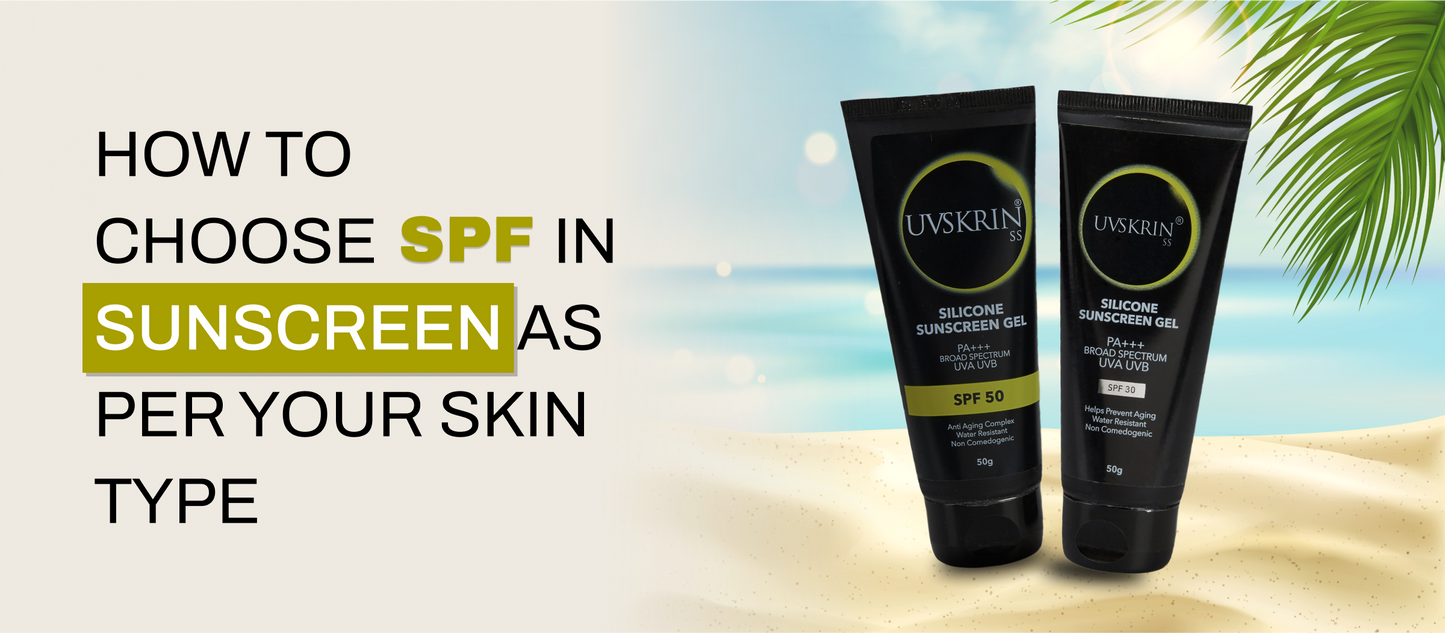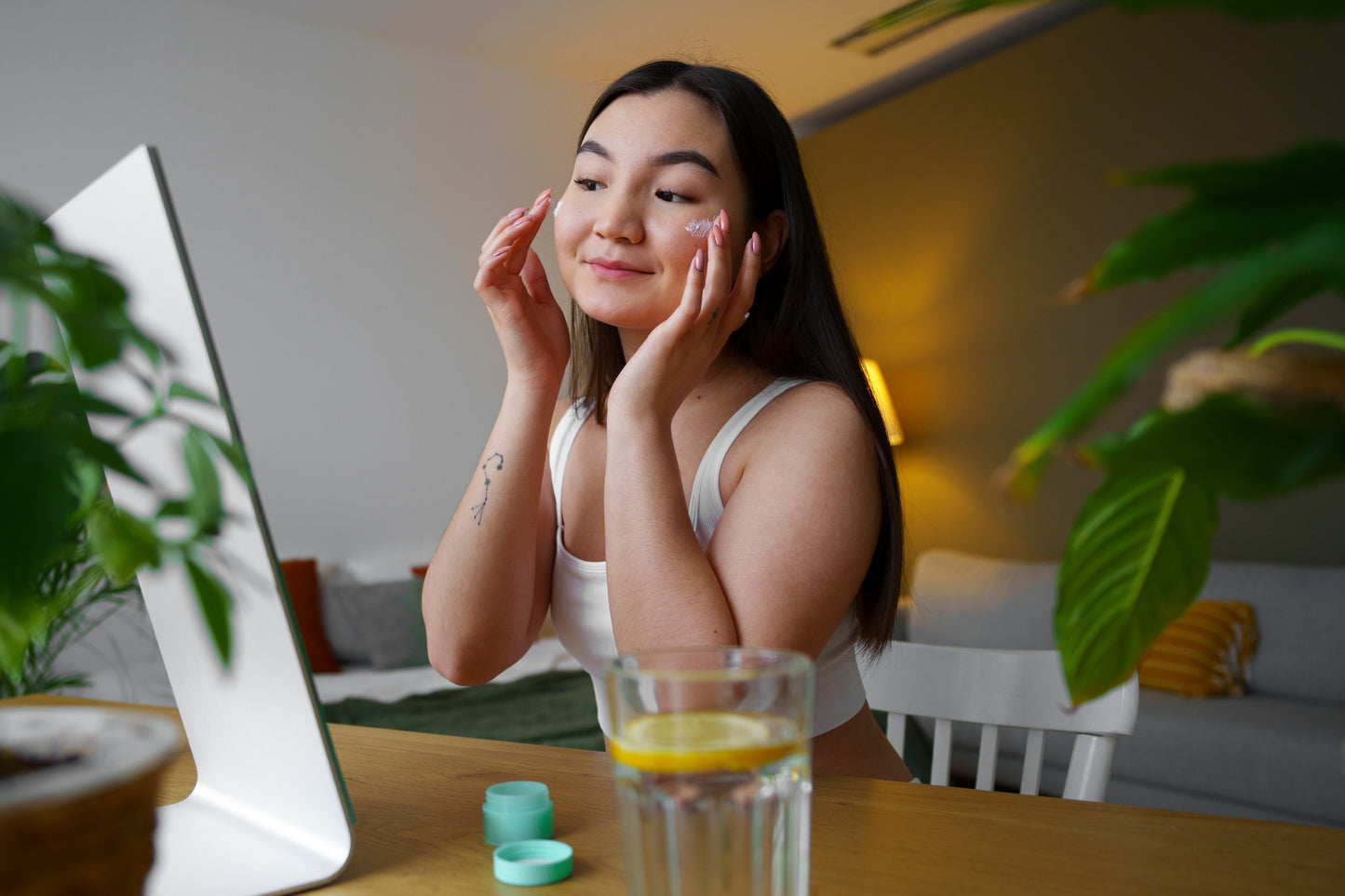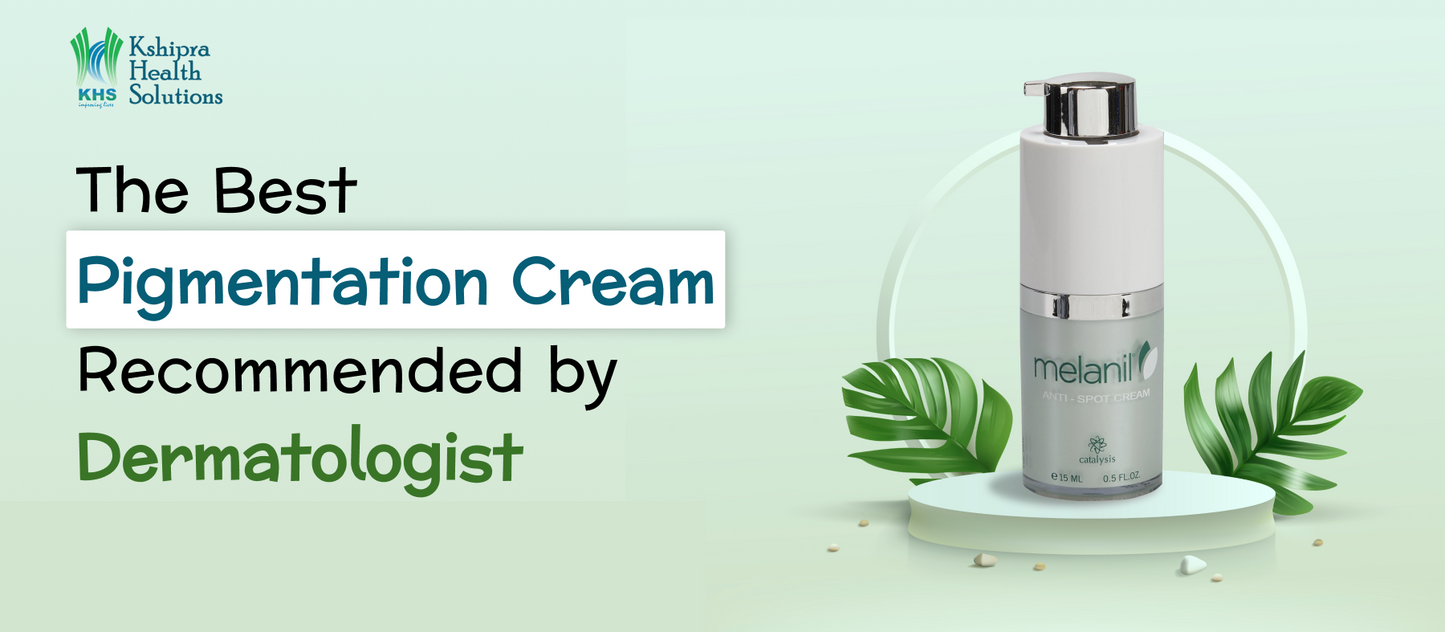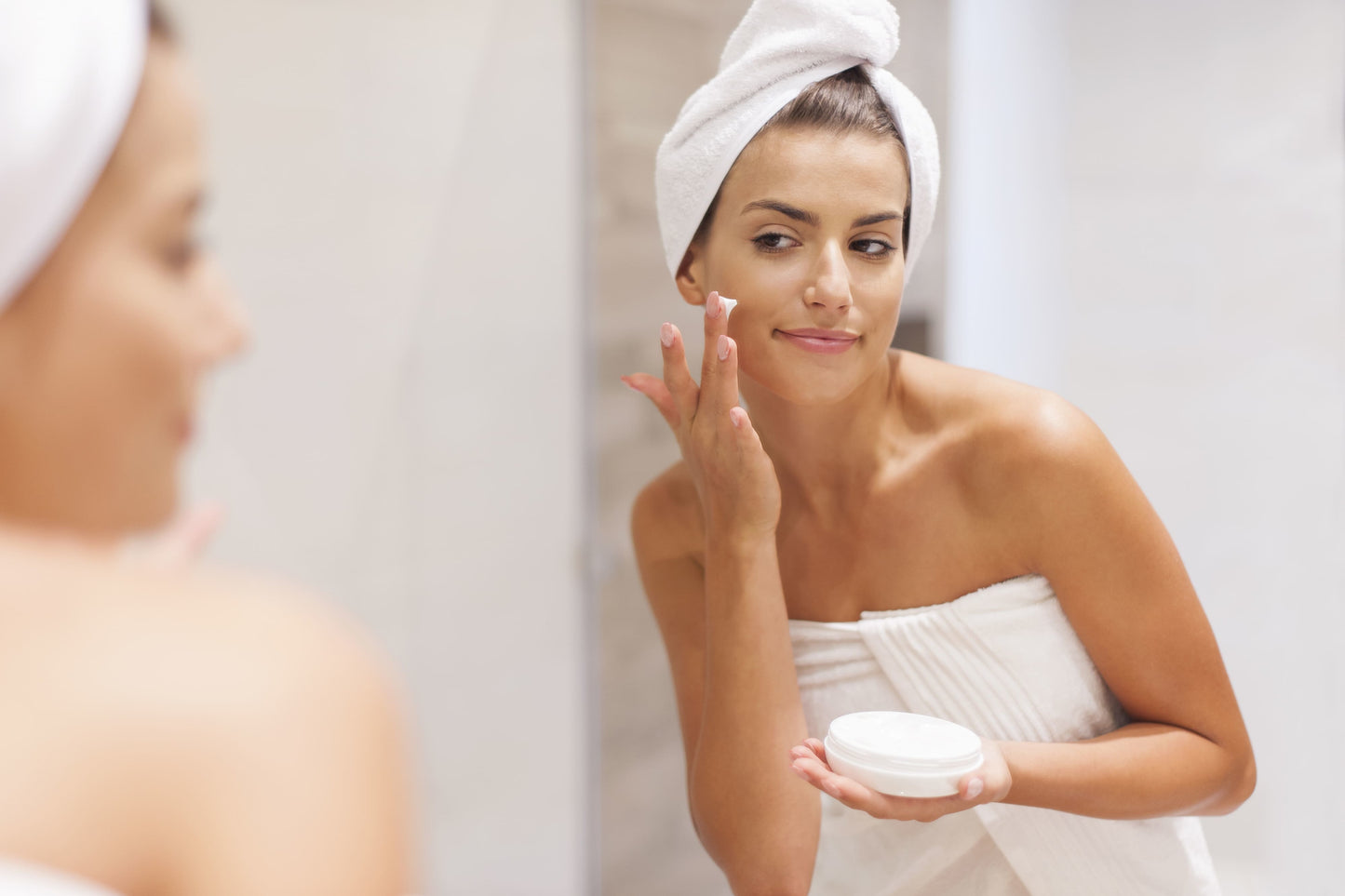
Our skin encounters various elements daily, and while we promptly address visible dirt and sweat, we often overlook the effects of a pervasive, invisible factor – sunlight.
In addition to the apparent sunburn resulting from prolonged exposure, the gradual impact of UV rays from the sun can lead to skin damage, contributing to well-known conditions such as skin cancer. Furthermore, its role as an accelerator of aging (UVA) poses a challenge for many individuals seeking to combat premature aging effects.
To overcome this challenge, the beauty industry has come up with SPF, a modern solution that shields you from sun damage. It works by reflecting the sun's rays and acting like a protective barrier, reducing the absorption of UV rays.
Nowadays, there are many SPF brands with different formulas and concentrations, each designed for specific skin types and purposes. To figure out how to choose SPF in sunscreen, we recommend you keep reading this blog.
What causes sunburn to occur?
Sunburn happens when our skin is exposed to an excess of ultraviolet (UV) radiation from the sun. The sun emits UVA and UVB rays, penetrating the outer skin layers. UVB rays primarily cause sunburn by damaging DNA in skin cells, triggering inflammation and redness.
Fair-skinned individuals are more susceptible due to lower melanin levels, the skin pigment that is responsible for providing natural UV protection. Prolonged sun exposure increases the risk. Sunburn severity correlates with skin sensitivity and duration of UV exposure.
In order to prevent any sort of damage start using silicone based sunscreen with varied SPF that suits your skin type, wear protective clothing, and avoid peak sun hours. Proper precautions help shield the skin from harmful UV effects.
In what way does SPF contribute to protecting the skin from sun damage?
SPF products have a chemical mix of organic and inorganic compounds. Organic compounds, such as avobenzone, octocrylene, and octinoxate, absorb UV radiation and transform it into heat, while inorganic compounds, like zinc oxide and titanium dioxide, act as physical blockers, reflecting or scattering UV rays. Sunscreens usually combine these for broad-spectrum protection against UVA and UVB rays.
1. UV rays' absorption:
SPF-containing products are formulated with chemicals that absorb UV rays, preventing them from penetrating the skin. This absorption mechanism helps reduce the impact of UVB rays, the primary culprits behind sunburn.
2. Extended Sunburn prevention:
By absorbing UVB rays, SPF significantly contributes to preventing sunburn. The higher the SPF value, the more extended the protection, giving the skin increased resilience against prolonged sun exposure.
3. UV rays Reflection:
Physical blockers such as titanium dioxide or zinc oxide are also included in some SPF formulations. These ingredients reflect UV rays away from the skin, providing an additional layer of defence against both UVA and UVB radiation.
4. Prevention of UV rays Induced Skin damage and UVA:
SPF is designed not only to shield against sunburn (UVB) but also to combat UVA rays. UVA rays contribute to premature aging and can cause long-term skin damage. SPF helps prevent this damage by either absorbing or reflecting these rays, promoting healthier and more resilient skin.
How to Choose the right SPF in Sunscreen
Choosing the right SPF concentration is vital for effective sun protection, as it indicates a product's ability to shield the skin from harmful UV rays.
In the market, SPF concentrations typically range from 15 to 100+. Lower SPF, like 15-30, provides moderate protection suitable for everyday activities, while higher levels, such as 50-100+, are recommended for prolonged sun exposure or sensitive skin.

• For SPF 15-30:
These lower SPF levels are suitable for everyday activities, offering moderate protection.
• For SPF 50-100+:
Higher SPF levels, like 50-100+, are recommended for prolonged sun exposure or if you have sensitive skin.
• UVB Blocking Comparison:
SPF 30 blocks about 97% of UVB rays, SPF 50 provides around 98% protection, and SPF 100+ gives a slightly higher level. Consider your skin type, outdoor activities, and sun intensity when choosing the right SPF for effective sun defense.
Factors to consider on How to choose the SPF concentration level in Sunscreen
So, we mentioned that the higher the SPF, the better protection against the sun. Does this mean everyone should go for higher SPF? The answer is no. There are various factors that heavily depend on how to choose the right sunscreen for your skin type.
1. Skin type to Consider SPF in Sunscreen
• Sensitive Skin: If you have sensitive skin, finding the right sun care can be a challenge. Avoid products with added perfume. For heightened reactivity around the eyes, opt for a zinc oxide stick, like our UVSKRIN SS-SPF 30, offering the right SPF concentration with gentle protection.
• Oily Skin: Oily skin requires special attention as some sunscreens may block pores and cause breakouts. If you are contemplating about how to choose sunscreen for oily skin, we would recommend for opting a mineral sunscreen with ingredients like zinc oxide or titanium oxide, acting like a mirror to the sun's rays, preventing skin issues.
• Pigmentation-Prone Skin: Dark skin often benefits from SPF 15 to 30. Consider using a Vitamin C product alongside sunscreen. Our product DERMAVOW STABILISED combines sunscreen with a vitamin C serum for an added layer of protection.
• Pale Skin: Pale skin is prone to sunburn, so SPF 50 like ours, UVSKRIN SS- SPF 50 is generally recommended. If sunbathing triggers flare-ups, prioritize protection to keep your skin safe.
2. The extent of coverage [basically clothing]
The choice of SPF depends on clothing coverage. If you're covered in long sleeves and pants, a lower SPF may suffice. For more exposed skin, especially in sunny conditions, opt for higher SPF levels to ensure comprehensive protection against harmful UV rays.
3. Water Resistant
Selecting the right SPF also depends on its water resistance, especially for those with excessive water exposure. Water-resistant sunscreens are designed to withstand water and sweat, providing prolonged protection in the sun, for example fishermen and lifeguards on the coast. When selecting sunscreen for areas with frequent water exposure, factor in these considerations to ensure effectiveness and long-lasting protection. Our BABÉ TRANSPARENT SUNSCREEN WET SKIN SPF 50 is the most suitable option for this purpose.
Perfect Timing and Frequency for Sunscreen Application
In short, there is no sunscreen that is effective throughout the entire day. You must reapply sunscreen as needed to maintain your protection from UV rays. Even on cloudy days, make it a habit to apply sunscreen first thing in the morning as part of your skincare routine for the best protection against the sun. Every two hours or more frequently if you're perspiring or swimming, reapply. By protecting your skin from damaging UV rays, this routine reduces the likelihood of sunburn and long-term damage.
Keep in mind, it's best to skip exfoliating before heading out during the day because it opens your skin pores, making them more sensitive to the sun. If you're using Vitamin C products along with sunscreen, make sure the concentration is below 5 percent.
By making sunscreen, especially with the right SPF, your skin's best friend, you can enjoy the outdoors while keeping it healthy and protected. Kshipra Health Solutions offers a range of products that make sun protection safer, easier, and more effective, making them worth the investment. Visit our website to explore our products and keep your skin shielded from the sun's harsh rays.
FAQs on How to Choose SPF in Sunscreen
1) How to choose sunscreen for dry skin
A: To choose sunscreen for dry skin, opt for hydrating formulas with glycerin or hyaluronic acid like you can combine our vitamin C Serum (DERMAVOW STABILISED) with our UVSKRIN SS- SPF 50. Enriched with vitamin C and hyaluronic acid, this serum not only nourishes but also adds an extra protective layer. Apply it before sunscreen for enhanced skin defense.
2) Can I use Broad Spectrum SPF under makeup?
A: Absolutely! Many Broad-Spectrum sunscreens are designed for easy integration into your skincare and makeup routine. Choose lightweight formulations for seamless application.
3) Are all sunscreens Broad Spectrum?
A: No, not all sunscreens offer Broad Spectrum protection. Check the label to ensure it explicitly mentions "Broad Spectrum" to ensure comprehensive coverage against UVA and UVB rays.








